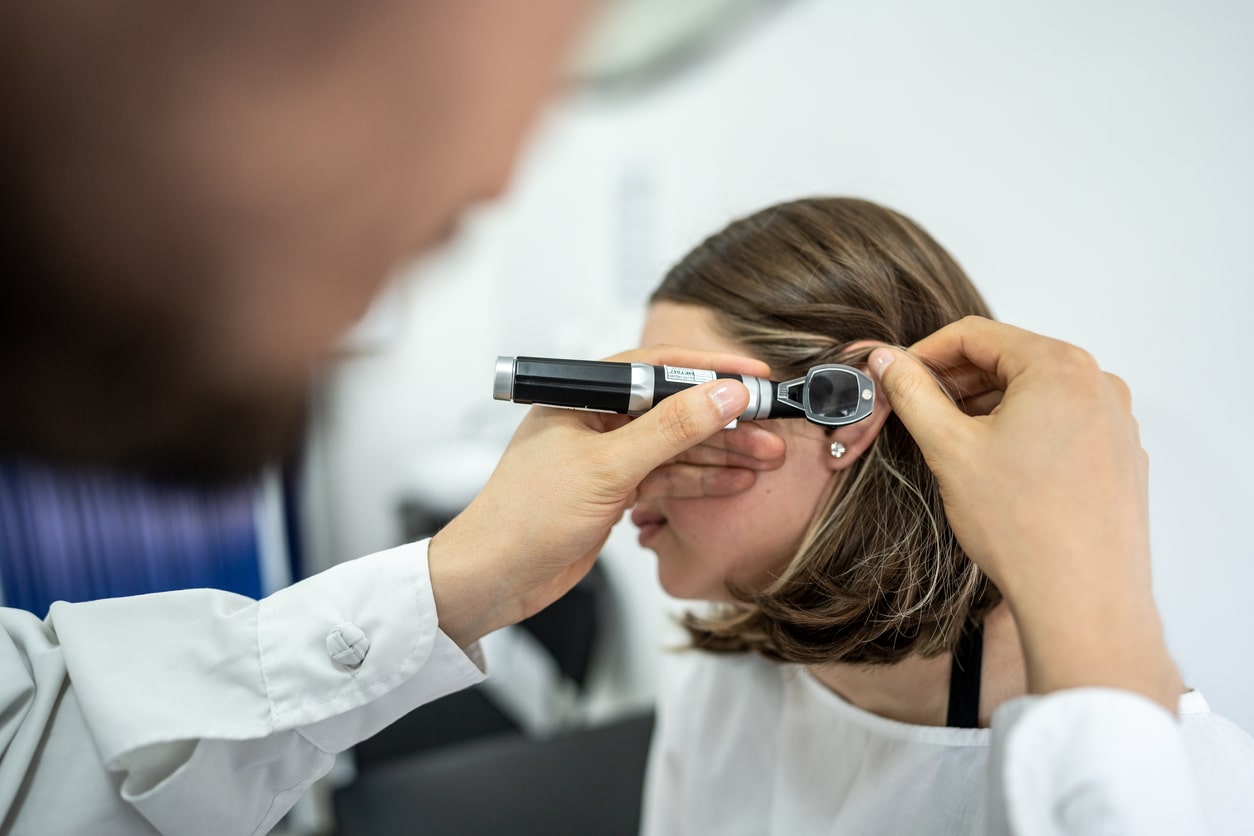Earwax blockages, or cerumen impaction, occur either when your body produces ear wax faster than it expels it or when the wax is pushed too far into the ear canal using cotton swabs or other small objects. Symptoms of earwax blockages may include:
- Irritation
- Ear pain
- Hearing loss
- Itching
- Dizziness
- Ringing in the ears (tinnitus)
Earwax blockage is relatively common, with approximately 10% of children and 5% of adults experiencing it. Blockage is more likely to occur in people who have excess ear hair, dry or hard earwax, misshapen ear canals, certain skin conditions, are over the age of 55 or use hearing aids, earplugs or earbuds.
How Are Earwax Blockages Treated?

To remove earwax blockages, your provider may recommend one or more of the following:
- Over-the-counter ear drops. Ear drops work to clear blockages by dissolving or softening earwax. To use ear drops, lay on your side, making sure the blocked ear is facing up. Place the recommended drops in your ear and let the liquid soak in to soften the wax. When you sit up, the liquid should drain out with the wax. Remember to use drops only when directed by your ENT specialist.
- Curet removal. A curet is a small, curved tool used to scrape out earwax manually. Curets should only be used by ENT professionals. Attempts to remove earwax with curets at home can lead to a ruptured eardrum, hearing loss or further impaction.
- Suction. With suction, a small vacuum device sucks the impacted earwax out, leaving the canal dry and preventing the need for scraping or scooping.
- Flushing. Your provider can flush out wax using a syringe filled with water or saline.
Earwax removal is a delicate process and should always be carried out by a professional to avoid injury or loss of hearing. If you are experiencing symptoms of earwax blockages, make an appointment with your ENT provider for assessment and treatment.
Can You Prevent Earwax Blockages?
The best way to prevent earwax blockages is to avoid sticking cotton swabs or other small objects in the ear. For those who produce excess or hard earwax, routine ear cleanings may be required to prevent blockages.
To learn more about caring for your ear health, contact ENT & Allergy Specialists – Ear Nose and Throat Physicians and Surgeons today to make an appointment with one of our trusted specialists.